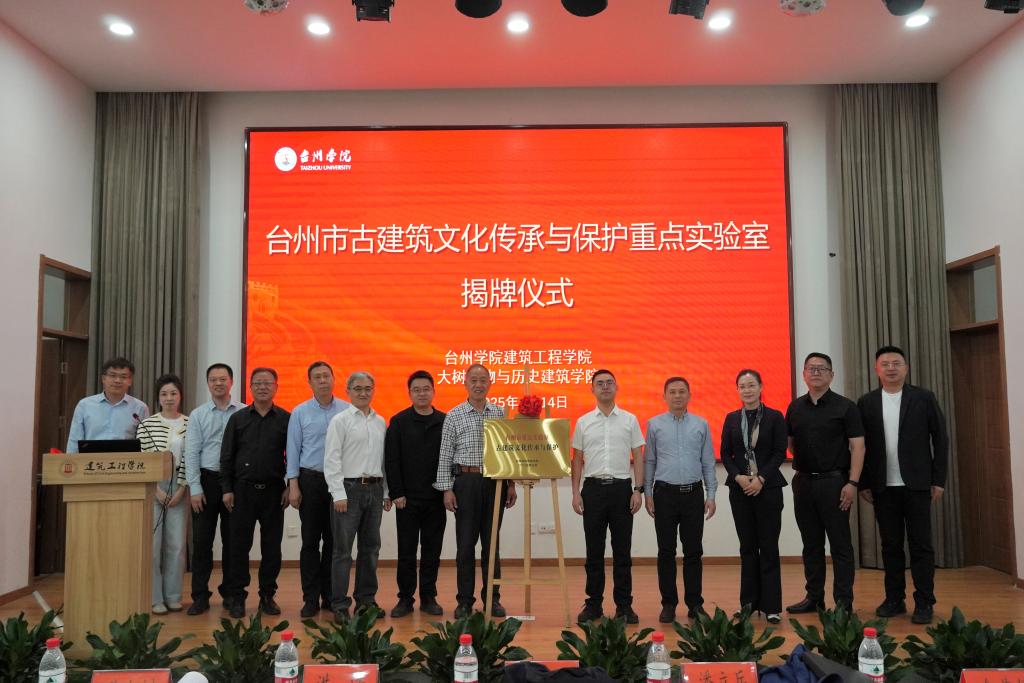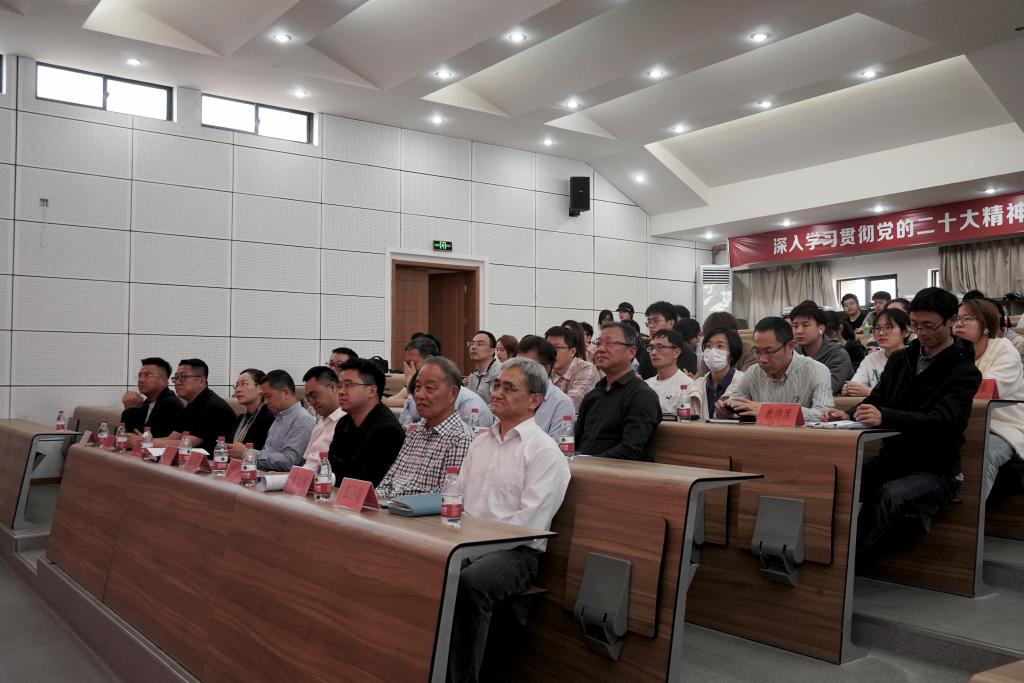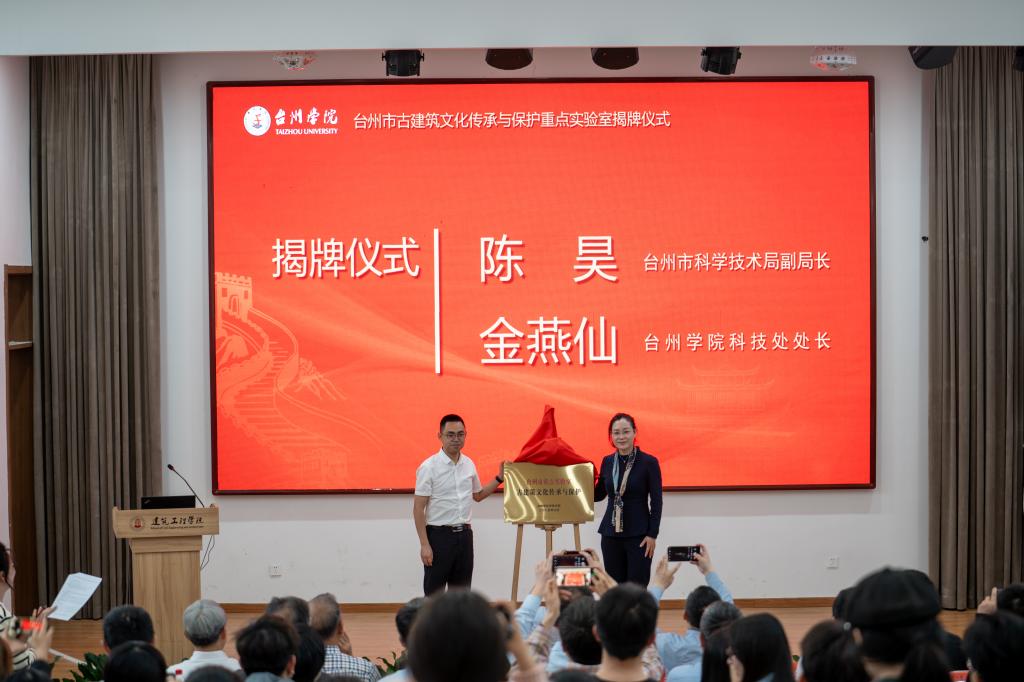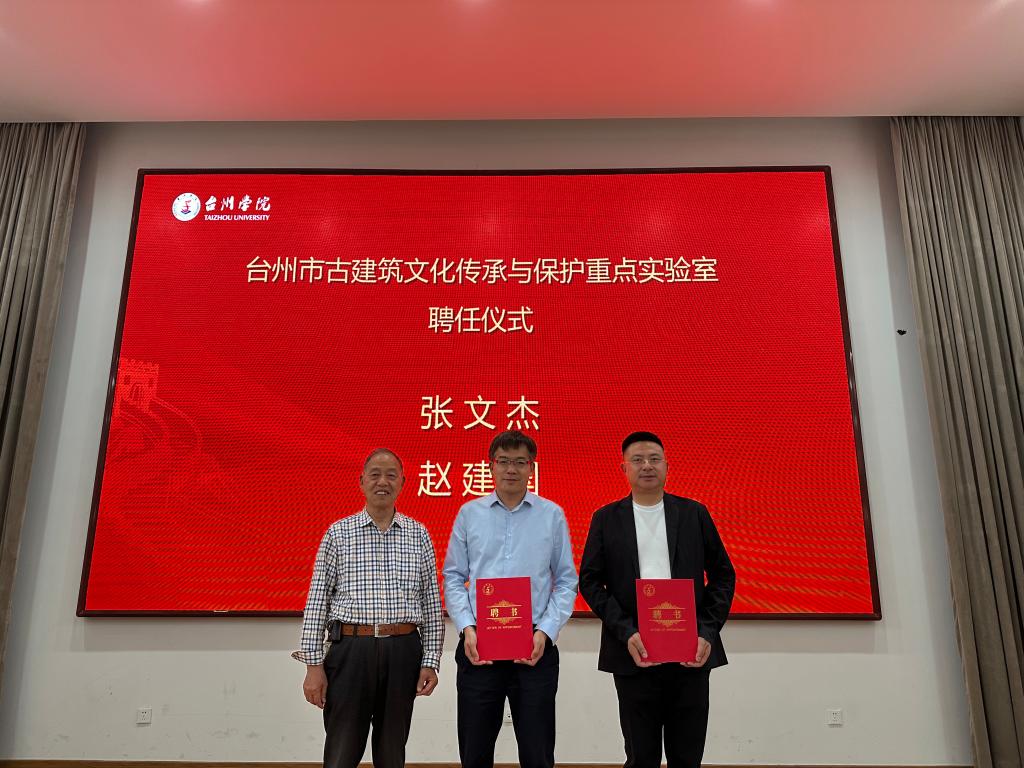The School of Civil Engineering and Architecture of TU held the inauguration ceremony for the Taizhou Key Laboratory for Cultural Inheritance and Protection of Ancient Architecture on the afternoon of April 14th. Chen Hao, Deputy Director and Member of the Party Leadership Group of the Taizhou Municipal Science and Technology Bureau; Pan Libing, Director of the High-Tech Department of the Taizhou Municipal Science and Technology Bureau; Hong Hao, Director of the Cultural Heritage Department of the Taizhou Municipal Bureau of Culture, Radio, Television, Tourism and Sports; as well as other leaders and guests from co-constructing entities such as Zhejiang Linhai Ancient Architecture Engineering Co., Ltd. and Zhejiang Guoteng Construction Group Co., Ltd., gathered at TU to jointly embark on a new journey for the protection of ancient architecture in Taizhou. The ceremony was presided over by Pan Ying, Secretary of the Party Committee of the School of Civil Engineering and Architecture.

Group photo
In his speech, Wang Xiaogang, Dean of the School of Civil Engineering and Architecture, pointed out that ancient architecture in Taizhou is facing the challenges of time’s erosion and urban development, making the task of inheritance and protection urgent. The school has joined forces with relevant enterprises to establish the laboratory with the support of the Taizhou Municipal Science and Technology Bureau, bringing together experts, scholars, and master craftsmen to shoulder the important responsibility of protection.
Chen Hao emphasized the cultural value of ancient architecture, stating that under the national strategy of building a cultural power, conducting research on ancient architecture is of great significance. He put forward four hopes for the construction of the laboratory: first, focus on the research and development of key technologies, overcome difficulties in structural assessment, disease prevention and control, and promote the application of research results; second, strengthen the construction of the talent team, attract domestic and foreign talents, and cultivate young reserve forces; third, deepen industry-academia-research cooperation, integrate resources from all parties, and facilitate the application of scientific research achievements; fourth, enhance international exchanges, learn advanced concepts and technologies, and boost international influence.

Chen Hao delivers a speech
Subsequently, Chen Hao and Jin Yanxian, Director of the Science and Technology Department of TU, jointly unveiled the plaque, marking the official operation of the laboratory. During the appointment session, Ding Zhihong, Chief Engineer of the Zhejiang Provincial High-end CNC Machine Tool Technology Innovation Center, was appointed as an advisor to the Academic Committee; Professor Zhang Wenjie, a doctoral supervisor from the School of Civil Engineering and Architecture of TU, was appointed as the Deputy Director of the Academic Committee; and Zhao Jianguo, Chairman of Zhejiang Guoteng Group, was appointed as a member of the Academic Committee.


Plaque Unveiling and Appointment Ceremony
Wang Shifang, Director of the laboratory, stated that the laboratory would take the Academic Committee as its think tank, gather interdisciplinary forces, cultivate professional talents, and contribute to the protection of ancient architecture. Previously, the School of Civil Engineering and Architecture, Linhai Ancient Architecture Engineering Co., Ltd., and Zhejiang Guoteng Group held in-depth exchanges and reached a consensus on the laboratory’s construction plan.
This inauguration ceremony is an important milestone in the cause of ancient architecture protection in Taizhou. In the future, the laboratory will integrate resources, leverage its scientific research advantages, and make contributions to the inheritance and protection of ancient architectural culture, enabling ancient architecture to regain its vitality in the new era.